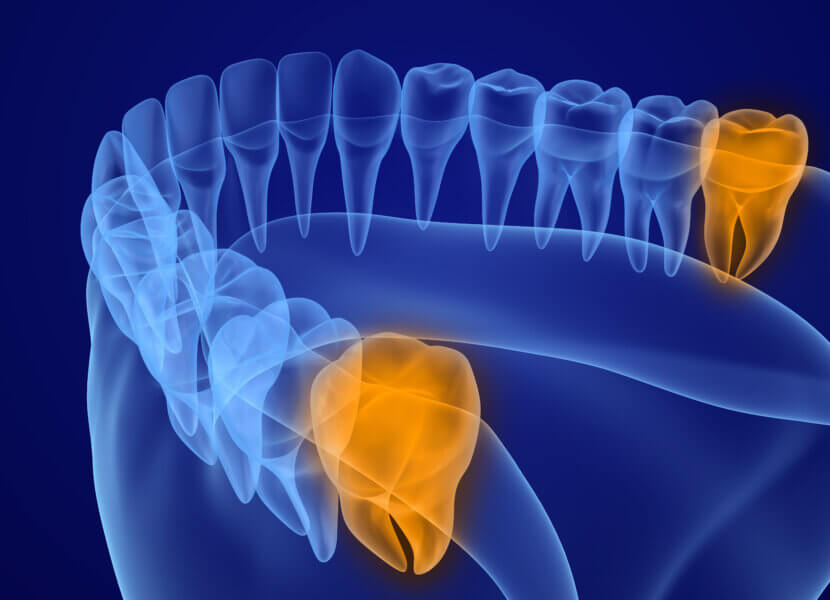
Why Do We Have Wisdom Teeth?
Wisdom teeth may make you feel just the opposite of smart — in fact, you might just feel like it’s stupid to have wisdom teeth at all. Wondering why they even exist? Here’s what you need to know.
Why we Have Wisdom Teeth
The anthropology experts say that wisdom teeth, also sometimes called your third molars, most likely developed to deal with the diet that early humans ate. Our ancestors consumed mainly very tough foods including roots and meat. The wisdom teeth provided the additional chewing strength needed to consume these foods.
Today, our foods are much more refined. We have softer foods, more advanced cooking techniques, and utensils, and all of these things mean that wisdom teeth really aren’t necessary to eat our food any longer. Today, wisdom teeth are essentially obsolete: they’re known as vestigial organs because evolution has made them unnecessary.
Why do Wisdom Teeth Take so Long to Appear?
Wisdom teeth don’t erupt until the teen years or early adulthood, even though they start forming in your tween years. They start growing only after all of your second molar set is grown in. Some people never experience wisdom teeth eruption at all.
You may get just one wisdom tooth, but most people get four. They may erupt at varying times and in varying ways. If you’re having trouble with one wisdom tooth, your dentist may recommend that you get the corresponding tooth on the other side removed at the same time. Sometimes, you may need to have all four wisdom teeth removed at once so you can avoid future surgeries.
Problems With Wisdom Teeth
Wisdom teeth commonly cause problems because human jaws have grown smaller over the years. This means that there’s just not enough space for your wisdom teeth to grow in, and this tends to cause serious crowding problems with the rest of your teeth when they try to erupt. Your wisdom teeth can get lodged below your second set of molars, compromising the teeth roots and possibly making the teeth weak or even loose.
Sometimes, wisdom teeth eruption can cause food particles to get lodged in your gums. This, in turn, causes bacteria growth and potentially a dangerous infection. Even if your wisdom teeth never erupt, it’s still possible for them to cause problems. For example, a deeply buried wisdom tooth can still affect the molars nearby. In the worst circumstances, a cyst can develop in the tissue around your wisdom tooth. These cysts can cause severe problems, including bone loss or major damage to the teeth that are around it. It’s also possible that a tumor can grow inside your cyst, which could even cause a jaw fracture.
The Best Time For Wisdom Teeth Removal
Many patients ask the dentist when the best time for wisdom teeth removal is. It really all depends on your specific individual situation. If your wisdom teeth aren’t giving you problems and X-rays don’t indicate that they’re poorly positioned, your dentist might tell you that you don’t have to get wisdom teeth extraction at this time.
Wisdom teeth extraction is generally best done during late adolescence, with the ages between 15-18 being optimal. This is because your wisdom teeth are not 100% formed yet at that stage, and thus they’ll be easier to remove. When you have the surgery after the age of 35, you have a higher chance of experiencing complications, more difficult healing, and more pain than you’d have if you did the surgery when you were younger.
Wisdom teeth extraction is a safe procedure, but it does require some recovery time. Therefore, having the surgery done at the optimal time is really best if you want the easiest recovery possible. Talk to your Vero Implants and Periodontics periodontist to find out how and when to best plan for your wisdom teeth extraction.
Vero Implants and Periodontics offers the best in periodontal services and maintenance. Request your appointment through the contact form now, or call 772-569-9700 today for help.